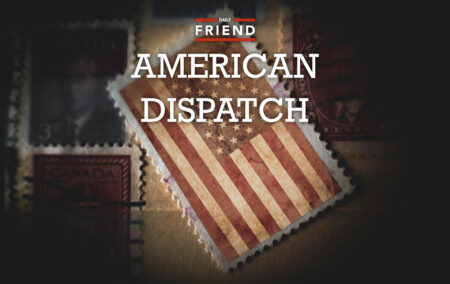During a just completed three-week assignment in Prague, I found both overwhelming support for Ukrainian resistance, and fear that the war could escalate.
Blue-and-yellow Ukrainian banners wave defiantly from homes and public buildings. Russia’s brutal ‘special operation’ has awakened memories of the 1968 Soviet invasion that crushed the Prague Spring freedom movement in Czech and Slovak lands.
President Milos Zeman, assertively pro-Russian until February, has publicly recanted, saying the Russian invasion is ‘a crime’ and calling President Vladimir Putin ‘a madman’. The Czechs in April delivered Soviet-era tanks to Ukraine. Together with Slovakia, the Czech Republic has welcomed three-quarters of a million Ukrainian refugees.
But there is fear that the war could spread deeper into Eastern Europe. Pavel, a veterinarian in north Bohemia says, ‘Putin is like Hitler. He won’t stop.’ Tomas, an entrepreneur and long-time friend, agrees that the Russians won’t stop until they are defeated. ‘Barry, you don’t know the Russians. We do. They are cruel, unpredictable and they lie.’
My friends in Prague – where I lived for three years in the 1990s – to a person emphasized the need to stand up to Putin. They made constant reference to Hitler’s invasion of Poland, an action that resulted in France and Britain declaring war on Germany.
Year of dire consequence
No matter the outcome of the war, 2022 is becoming a year of dire consequence, a counterpoint to the exhilaration of 1989’s anti-communist revolutions.
Vladimir Putin’s disastrous miscalculation seems certain to reshape the geo-political map of Europe and perhaps the world. Henry Kissinger, lucid and articulate at 98, says because of the war, ‘we are living in a totally new era’. Speaking at a Financial Times conference in Washington, Kissinger cautioned against promoting regime change in Russia or taking actions that drive Western rivals Russia and China closer together.
Putin’s war has already had consequences contrary to what he intended. Europe is unified, resolutely turning away from Russia, choosing to absorb economic pain by severing economic and financial ties with Moscow. In Finland and Sweden the invasion has triggered such widespread alarm that they have thrown out decades-long neutrality to seek security within Nato.
Is Finland’s accession to Nato a provocation to Moscow, as it brings Nato right up to Russia’s 800-mile-long border with Finland?
Urges caution
Jeffrey Sachs, the Columbia University professor who advised former Russian President Boris Yeltsin, urges caution. He condemns the bravado of an American administration that seeks Ukrainian victory and a weakened Russia. He warns that a country with 1 800 nuclear warheads should not be pushed into a corner.
Speaking on CNBC, Sachs said ‘accidents happen’, particularly when Russian relations with the West are already on a knife’s edge. Without diplomacy providing an off-ramp for Russia, he fears the war will grind on with massive destruction and more lost lives.
With sanctions, Europe is unwittingly promoting a continent-wide recession. Natural gas prices are up 400 to 500 per cent over the past year and could rise further as the European Union weans itself from Russian energy. Inflation is at a 40-year high and the European Central Bank is poised to raise interest rates for the first time in a decade. Higher rates will slow an already lagging economy. Czech economist Jan Tauber foresees recession in 2023, if not sooner.
Is the freezing of $600-billion of Russian reserves and kicking Russia out of the Swift banking service reckless, I ask my friends? Those actions, I suggest, surely resonate in Beijing and will prompt China to explore measures to prevent it from being similarly targeted. Won’t banning Russia from dollar and euro credits prompt the world’s second biggest economy to accelerate plans for an alternative payments system?
Set to be a winner
No matter which side wins in Ukraine, China is set to be a winner. The Russia-China strategic partnership has endured, but within it China has become stronger, Russia weaker. Shut out of European markets, Russia has little choice but to shift trade to Asia. China and India will buy Russian oil and gas at discounted prices.
Anders Aslund, who advised Russia’s reformist government until 1993, and wrote a book on Russia’s crony capitalism, agrees with the prevailing sentiment in Central Europe. He argues that ‘Putin must be defeated…as the only language he understands is the language of overwhelming strength.’
Aslund continues in a 15 May article for the Atlantic Council think tank that ‘the only way to end the war conclusively is via a decisive Ukrainian victory that forces Russia to acknowledge its defeat and sees Ukraine regain all the land it has lost since 2014’.
* Barry D. Wood, the Daily Friend’s Washington-based columnist, was the Voice of America correspondent in Prague from 1994 to 1997. He has been in Prague teaching a Charles University course on Technology in the Silicon Valley.
The views of the writer are not necessarily the views of the Daily Friend or the IRR
If you like what you have just read, support the Daily Friend


